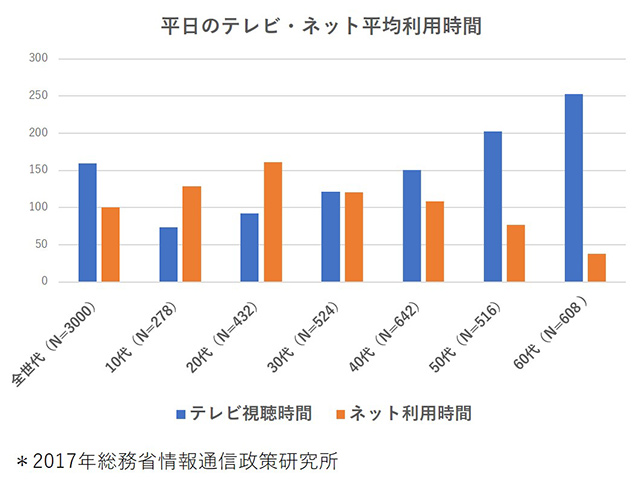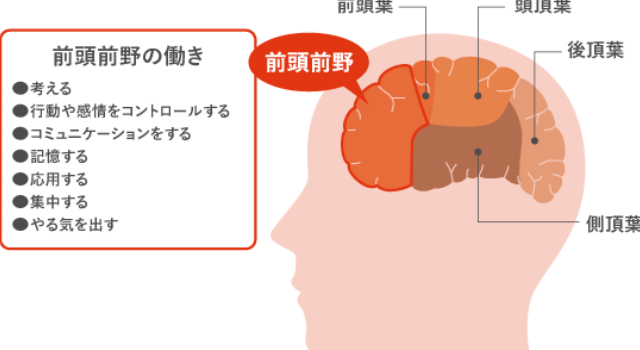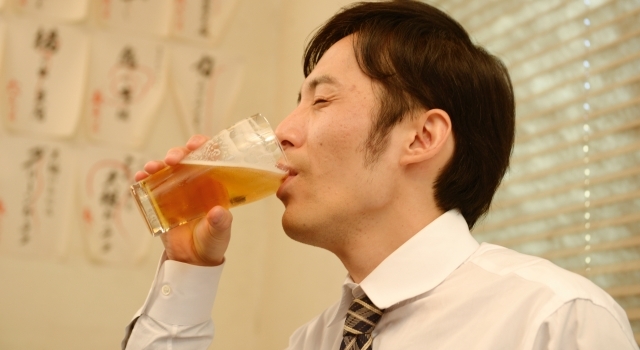According to Japan’s Ministry of Internal Affairs and Communications, around 80% of households use smartphones, making it an indispensable part of daily life. In addition to smartphones, almost all household in Japan have TV(s).
Moreover, the most important factor is the usage time, ie: amount of time spent on the internet and time spent watching television. Based on findings by Japan’s Ministry of Internal Affairs and Communications Policy Research Institute in 2017, the typical household spends around 100.4 minutes on the internet and 159.4 minutes watching TV on weekdays. moreover, the results showed that internet usage was longer for those in their teens to 20’s, and TV viewing time was longer for those in their 40-60’s.
When an individual watches TV, their brain’s “occipital lobe” related to vision and the “temporal lobe” related to hearing are mainly active. However, the brain concentrates on seeing and hearing, but the blood flow in the prefrontal cortex which is related to “thinking” shows a noticeable decline in activity. Although the data was taken from studies done with children and watching television, smartphones also have the same effect on the brain.
One study also found that older people with longer television viewing times had lower cognitive function and a higher risk of developing Alzheimer’s and/or dementia. TV’s and smartphones do not cause a big problem if they are used for about an hour a day, so it is important to keep everything moderate.










